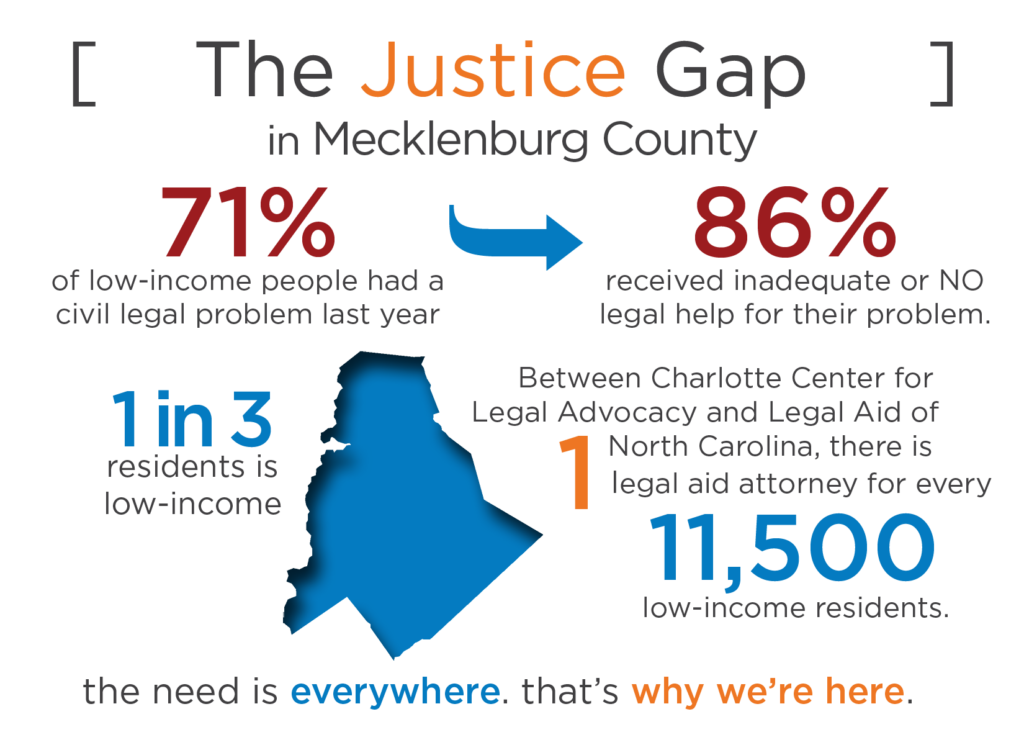The Justice Gap
What would you do if your basic needs were on the line?

Our neighbors struggle to answer this question every day.
- 1 in 3 Mecklenburg residents is low-income.
- 71% had at least one civil legal problem this year that significantly altered their life.
- Only 14% received the legal help they needed.
What is a civil legal problem?
A civil legal problem impacts a person’s ability to live their life or pursue their full potential by limiting their access to basic needs of safety, economic security and family stability.
Examples include:
- Cleaning up a Criminal Record
- Consumer Scams
- Debt Collection
- Healthcare Access
- Housing Issues and Home Preservation
- Immigration Status
- Income Security
- Protection from Domestic Violence
- Tax Disputes
- VA Disputes
Everyone knows someone who has a civil legal problem.
Some groups are especially vulnerable:
- Children & Families
- Immigrants
- People living with Disabilities
- Seniors
- Veterans
Why is there a Justice Gap?
While those facing criminal charges have the constitutional right to an attorney, NO ONE has right to legal assistance in civil cases.
That leaves most people without means or resources to get legal help on their own to face legal problems that threaten their safety, economic security and family stability.
What can an attorney do?
Life altering decisions are made every day in our civil legal system that directly impact a person’s chance at a stable life and, ultimately, opportunity.
These decisions are not based on whether a person did something wrong. Instead, they are based on how well a case is presented in a complex court system designed for those with legal representation.
Those who cannot afford an attorney or access critical information lose because they cannot effectively present their cases.
Families are in desperate need of legal assistance to remedy their problems, but they can’t afford it. Friends and family can’t help; a church can’t help; a social worker can’t help.
When stability is on the line, an attorney is a critical advocate in an inaccessible legal system.
Equal justice under the law is a right, not a privilege.
When there is nowhere else to turn, Charlotte Center for Legal Advocacy and Legal Aid of North Carolina-Charlotte are there to advocate on behalf low-income people. They fight to ensure access and fairness under the law with a vision of building a more just community for everyone, not just those who can afford it.
That’s why these organizations are at the forefront of local issues that restrict economic mobility and opportunity in our community, fighting poverty at its core.
Learn how we’re bridging the gap
However, with limited resources between these two organizations, there is one legal aid attorney for every 11,500 low-income residents.
You can help ordinary people get a fair shot at the American promise of justice for all.
Make a secure, tax-deductible donation today to the Access to Justice Campaign, benefiting Charlotte Center for Legal Advocacy and our partner in justice Legal Aid of North Carolina-Charlotte. You can also direct your gift to a particular program or to Charlotte Center for Legal Advocacy’s general fund. Thank you for your support!